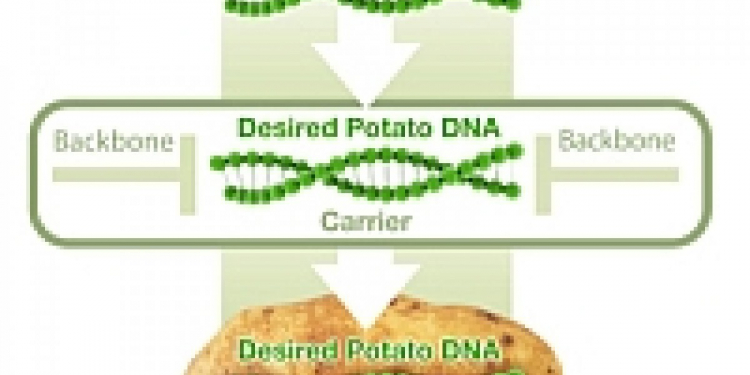A dozen years after a customer revolt forced Monsanto to ditch its genetically engineered potato, an Idaho company aims to resurrect high-tech spuds.
This month, tuber processing giant J.R. Simplot Co. asked the U.S. government to approve five varieties of biotech potatoes. They’re engineered not to develop ugly black bruises – McDonald’s, which gets many of its fries from Simplot, rejects those. They’re also designed to have less of a natural but potentially cancer-causing neurotoxin, acrylamide.
Much has changed in 12 years, according to the Boise-based company.
Unlike transgenic varieties Monsanto commercialized in the 1990s using genes from synthetic bacteria to kill insect pests, Simplot’s new “Innate”-brand potatoes use only potato genes.
Haven Baker, Simplot’s Yale- and Harvard University-trained vice-president of plant sciences, said his scientists journeyed inside the vegetable’s genome to “silence”unwanted attributes, while making sure it remained 100 percent potato.
The Washington, D.C.-based National Potato Commission, representing 45,000 U.S. growers, learned of Simplot’s plans several months ago. Chief Executive Officer John Keeling said it supports scientific advancements to improve potatoes, but has advised Simplot to avoid past mistakes.
For instance, some Monsanto tubers found their way into Japan, where they weren’t approved. After that, Japan-bound U.S. potatoes had to be tested, he said.
“If some parts of the marketplace are saying they don’t want Innate technology and others want it, you’ve got to be able to address both of those issues.”Keeling said. “Simplot seems to have taken to heart the thoughts that we had.”
Simplot is also seeking approval in Japan, as well as Canada, Mexico and South Korea.





